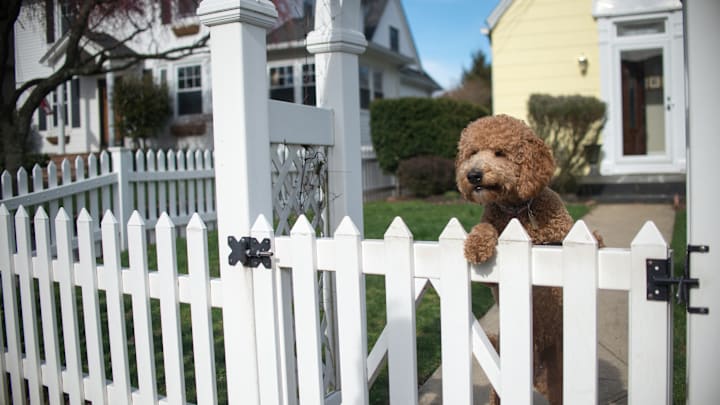Employing drug-sniffing canines and patrol dogs offer one potential way to combat criminal activity, but it turns out that even the simple act of walking a dog can act as a deterrent.
A new study from researchers at The Ohio State University and the University of Texas at Austin, published in the journal Social Forces, found that communities in Columbus, Ohio with greater concentrations of dog owners experienced fewer incidences of crime. Researchers examined the crime rate for 595 Census groups from 2014 to 2016, as well as data from a 2013 survey about dog ownership. They also looked at information measuring the level of trust between residents in a given neighborhood.
Areas with high levels of neighborhood trust had lowered crime; areas with high levels of trust and greater concentrations of dogs were lower still. The dog-heavy areas saw just two-thirds the number of robberies and half the number of murders compared to low-trust areas.
It’s not that the dogs are warding off scofflaws—instead, the study suggests that owning a dog brings with it a greater level of community involvement. If you own a dog, you’re walking a dog, which means having more sets of eyes in a community as well as opportunities to interact with neighbors. The dog isn’t so much the reason as the spark for creating a more tightly-knit area that makes suspicious behavior more, well, suspicious.
“People walking their dogs are essentially patrolling their neighborhoods,” Nicolo Pinchak, the study’s lead author, said in a press release. “They see when things are not right, and when there are suspect outsiders in the area. It can be a crime deterrent."
“Trust doesn’t help neighborhoods as much if you don’t have people out there on the streets noticing what is going on,” Pinchak added. “That’s what dog walking does… When people are out walking their dogs, they have conversations, they pet each other’s dogs. Sometimes they know the dog’s name and not even the owners. They learn what’s going on and can spot potential problems.”
Because the link between dogs and lowered crime isn’t causal, any sort of engaging neighborhood activity might do the same. But dog owners tend to have a virtually involuntary objective: Walking a pooch is necessary in a way that regular socializing is not. It’s something to keep in mind the next time you’re looking for a new place with your pup to call home.
[h/t Science Alert]
